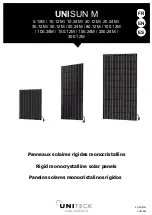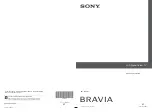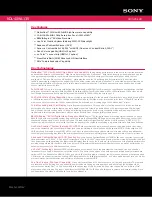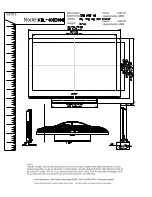
3-2
&20081,&$7,21(19,5210(176
The TCS can communicate with the host using either 7 or 8 data bits. The number of data bits is
selected by setting the Data Bits parameter in the Setup Screen. (See the Data Bits command in
Chapter 4.)
When the TCS is set for 7-bit communication, the TCS sends and receives 7-bit codes. Seven-bit
communication allows the host and the TCS to send and receive the lower 128 codes directly.
The upper 128 codes are sent and received using 7-bit codes with the control codes Shift Out
(<SO>, 0E hex) and Shift In (<SI>, 0F hex). This technique is explained in detail in Chapter 5.
When the TCS is set for 8-bit communication, the TCS sends and receives 8-bit codes. Eight-bit
communication allows the host and the TCS to send and receive the full set of 256 codes directly.
&20081,&$7,21&2'(6
ASCII established a widely used set of 7-bit codes for representing 128 characters for
transmission. The code set includes displayable characters (including letters, numbers, and
punctuation) and non-displayable control codes (which perform specific functions, such as
sounding a beeper or moving a cursor).
To represent the 128 ASCII codes plus an additional 128 codes, the TCS extends the ASCII code
set by including an additional high-order bit, thereby converting 7-bit ASCII codes to 8-bit codes.
The host and the TCS can thereby send each other any of 256 possible codes (decimal 0 through
255). Of
these 256 codes, ANSI has designated 66 as control codes and 190 as graphic codes.
&+$5$&7(56(76
The TCS has two character sets corresponding to the codes that can be sent by the host. The
Standard Character Set corresponds to the lower 128 codes; the Extended Character Set
corresponds to the upper 128 codes. The contents of these character sets can be changed as
described in Chapter 5, Character Set and Character Font Commands. The default contents of
the character sets are documented in Appendix C.
&RQWURO&RGHV
Of the 256 communication codes, 66 are reserved by ANSI as control codes. Individual control
codes perform specific functions in the TCS, such as sounding the beeper or moving the cursor,
and do not normally cause the display of a corresponding graphic character.
Half of the control codes can be sent using 7-bit ASCII codes. Thirty-two of these codes
correspond to columns 0 and l of the Standard Character Set (code values 00 through lF
hexadecimal). The thirty-third 7-bit control code corresponds to the last location in the Standard
Character Set (code value 7F).
The other half of the control codes can only be sent using 8-bit ASCII codes. Thirty-two of these
codes correspond to columns 8 and 9 of the Extended Character Set (code values 80 through 9F
hexadecimal). The thirty-third 8-bit control code corresponds to the last location in the Extended
Character Set (code value FF).
Summary of Contents for Dynapro ET TCS
Page 1: ......
Page 127: ...5 40 LJXUH QFRGLQJ WKH 6L HOV...
Page 194: ...6 4 LJXUH 7RXFKNH 9LVXDO WHQW...
Page 310: ......
Page 311: ......
Page 312: ......
Page 313: ......
Page 314: ...ASCII Code Custom Character Pattern Chart ASCII Code ASCII Code ASCII Code...
















































